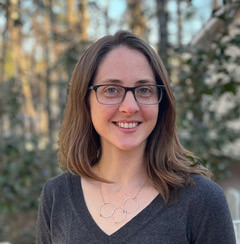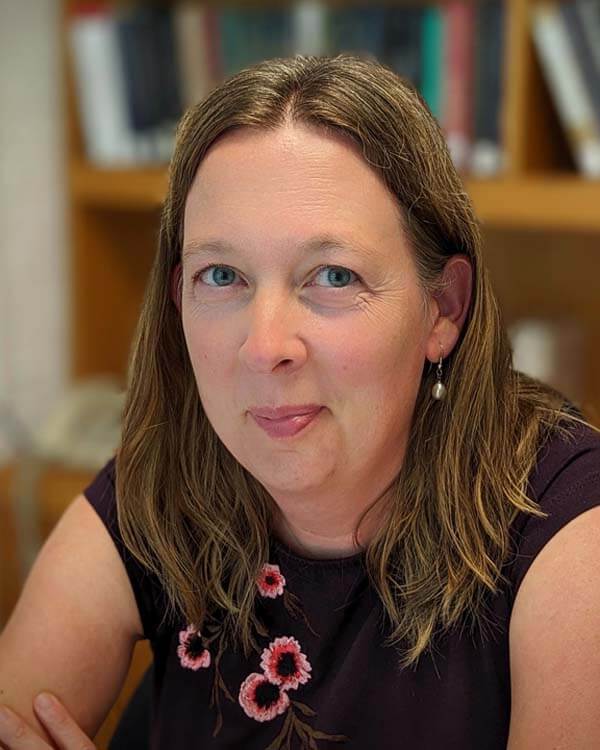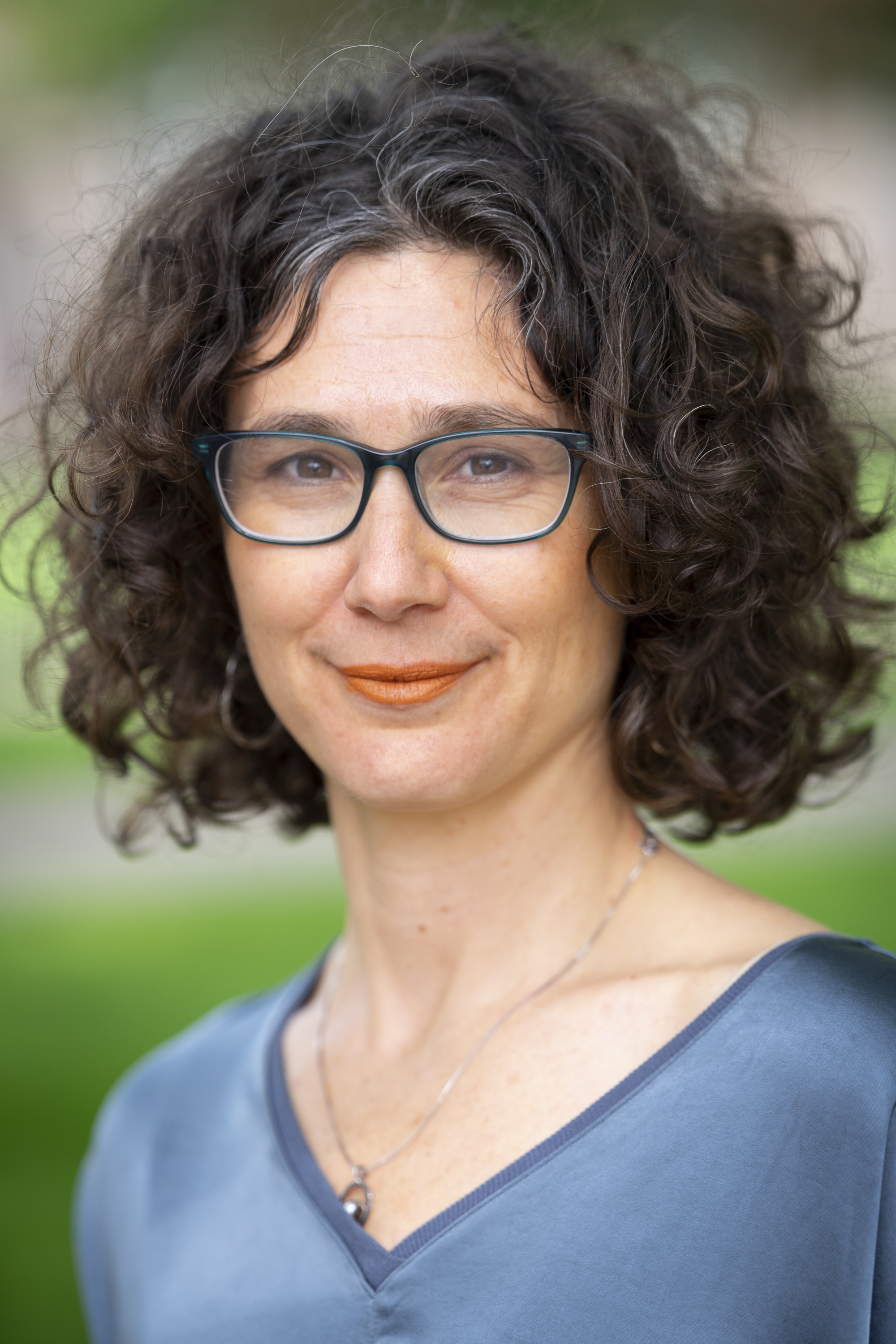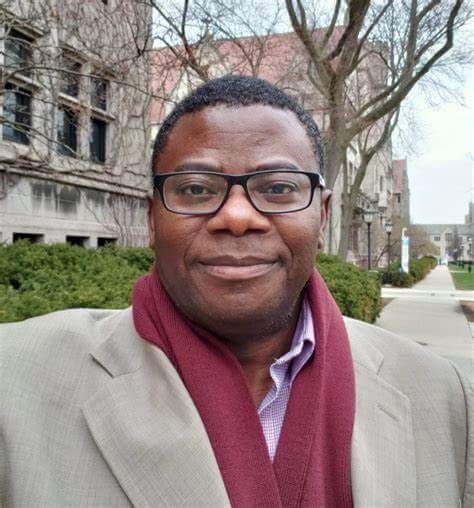Announcing the 2024 Chapman Summer Fellows
April 19, 2024 | Laney
Four faculty members were honored as Chapman Summer Fellows as part of the 2024 University Teaching Awards. Anna Krome-Lukens, Mariska Leunissen, Michal Osterweil, and Isaac Unah were recognized for their distinguished teaching of undergraduate students.
The Chapman Summer Fellowship Program, also known as the Chapman Family Teaching Awards, was created in 1993 with a gift from Max Carrol Chapman Jr. ’66 on behalf of the Chapman family. Chapman Summer Fellows receive a stipend of $30,000 to be used over a five-year period.
The 2024 Chapman Summer Fellows are:
- Anna Krome-Lukens (FFP ’21), Teaching Associate Professor and Director of Experiential Education, Department of Public Policy
- Mariska Leunissen (FFP ’16), Professor, Department of Philosophy
- Michal Osterweil (ALP ’22), Teaching Professor, Curriculum for Global Studies
- Isaac Unah, Associate Professor, Department of Political Science
Biographies of the recipients are below, as well as their answers to prompts by University Communications.
Anna Krome-Lukens

Teaching Associate Professor and Director of Experiential Education, Department of Public Policy
Anna Krome-Lukens has restructured the Capstone to Public Policy, which is taken by all Public Policy majors (unless they complete an Honors Thesis). As such, she has direct and lasting influence on the career development and planning of all PLCY majors. She will use the project funds to write a book collaboratively with students to combine theoretical perspectives and case studies to answer the question “why does history matter to public policy”?
Who is the best teacher you’ve had and why?
Two professors I had at the University of Virginia stand out: Lori Schuyler and Ira Bashkow. They remain my role models for supporting students’ growth. Each took me seriously and made me feel that my intellectual contributions were original and valuable, even when I struggled to make that true!
What’s something creative you’ve done to engage your students?
One of my favorite ways to analyze a reading is for small groups to draw on the board a visual representation of an article’s argument. I love seeing the range of approaches (cartoons, timelines, drawings of trains, etc.) and how each captures some different facet of the core concepts.
Mariska Leunissen
 Professor, Department of Philosophy
Professor, Department of Philosophy
Common themes in the anonymous end-of-course comments from Leunissen’s students include praise for her meticulous preparation, her impressive command of the material, her ability to provide rich and vivid historical context, her carefully designed handouts and incredibly helpful PowerPoint slides, her success in engaging students from many different backgrounds, and her sense of humor. Students frequently report that Professor Leunissen’s own evident enthusiasm makes them eager and happy to learn; they often say how much fun it is to learn from her. She will use the Chapman Award funds to support preparation of an edited volume on “New Directions in Ancient Philosophy” and organize an associated workshop for the contributors, and then use the insights and ideas gained through the production of this volume to radically rethink and redesign PHIL210: Wonder, Myth, and Reason: Introduction to Ancient Greek Science and Philosophy.
Who is the best teacher you’ve had and why?
Ineke Sluiter in the classics department at Leiden University. She fostered independent thought, organized opportunities for students to participate in cutting-edge research and encouraged participation in academic opportunities outside of the Netherlands. She remains a role model of superb teaching, mentoring and academic leadership.
What’s something creative you’ve done to engage your students?
I try to tap into my students’ creativity and assign activities that speak to their strengths and interests. In some courses, students create Jamboards to explain difficult concepts or write speeches in the voice of Antigone addressed to Socrates on the question of whether the just is worth dying for.
Michal Osterweil
 Teaching Professor, Curriculum for Global Studies
Teaching Professor, Curriculum for Global Studies
Many students recognize her practice of starting each class session by inviting a pause or a short meditation. Osterweil will use the project funds to further develop her research in Transformative Pedagogy, which treats the body and mind as a whole and invites students to experience learning with their whole bodies and whole selves. She plans to develop a website that explains the approach and offers descriptions of key practices, as well as to develop and curate teaching materials, including in-person workshops and webinars, and to begin work on a book, regarding transformative pedagogy.
Who is the best teacher you’ve had and why?
So many people and moments made me see the world differently and changed what I understood to be possible. The best teachers have been the challenges that the world has thrown at me (illness, difficult relationships, painful experiences, etc.). They have transformed who I am and know myself to be.
What’s something creative you’ve done to engage your students?
I have started class with a session of dancing or shaking it out or bringing collage and coloring supplies to use throughout class or creating a poem out of responses to the week’s readings. The goal is to create connection to our full selves as we learn challenging material.
Isaac Unah
 Associate Professor, Department of Political Science
Associate Professor, Department of Political Science
One nominee stated that “Professor Unah is one of the reasons I am a lawyer today, and that Professor Unah works tirelessly for his students.” From nominations, interviews, and observations, he is clearly admired and respected, and his department chair described him as a “nothing less than a beacon of humanity.” He will use the award funds to support the preparation of a book containing data collected with his UNC undergraduates regarding recusal behavior in state supreme courts. He will also organize a one-day visit to the US Supreme Court with students to hear oral arguments.
Who is the best teacher you’ve had and why?
My college algebra teacher, Ms. Claire Battista. She was very organized in the classroom, knowledgeable and had a special talent for explaining complex concepts and formulas. Most importantly, she cared very deeply about her students, what they were learning and how.
What’s something creative you’ve done to engage your students?
I’ve been collecting survey data about students’ drinking behavior for 23 years. I settled on a topic that students have some familiarity with. I use the data to teach and engage with my students about how to analyze data to address important questions about politics, law and the judicial system.
The 2024 University Teaching Awards recognized 25 faculty members and graduate teaching assistants. The Center for Faculty Excellence’s University Teaching Awards Committee reviews nominations each fall and gathers additional information before recommending a slate of winners to the chancellor. Read the full list of 2024 award winners.
Categories: Featured News Content, News

